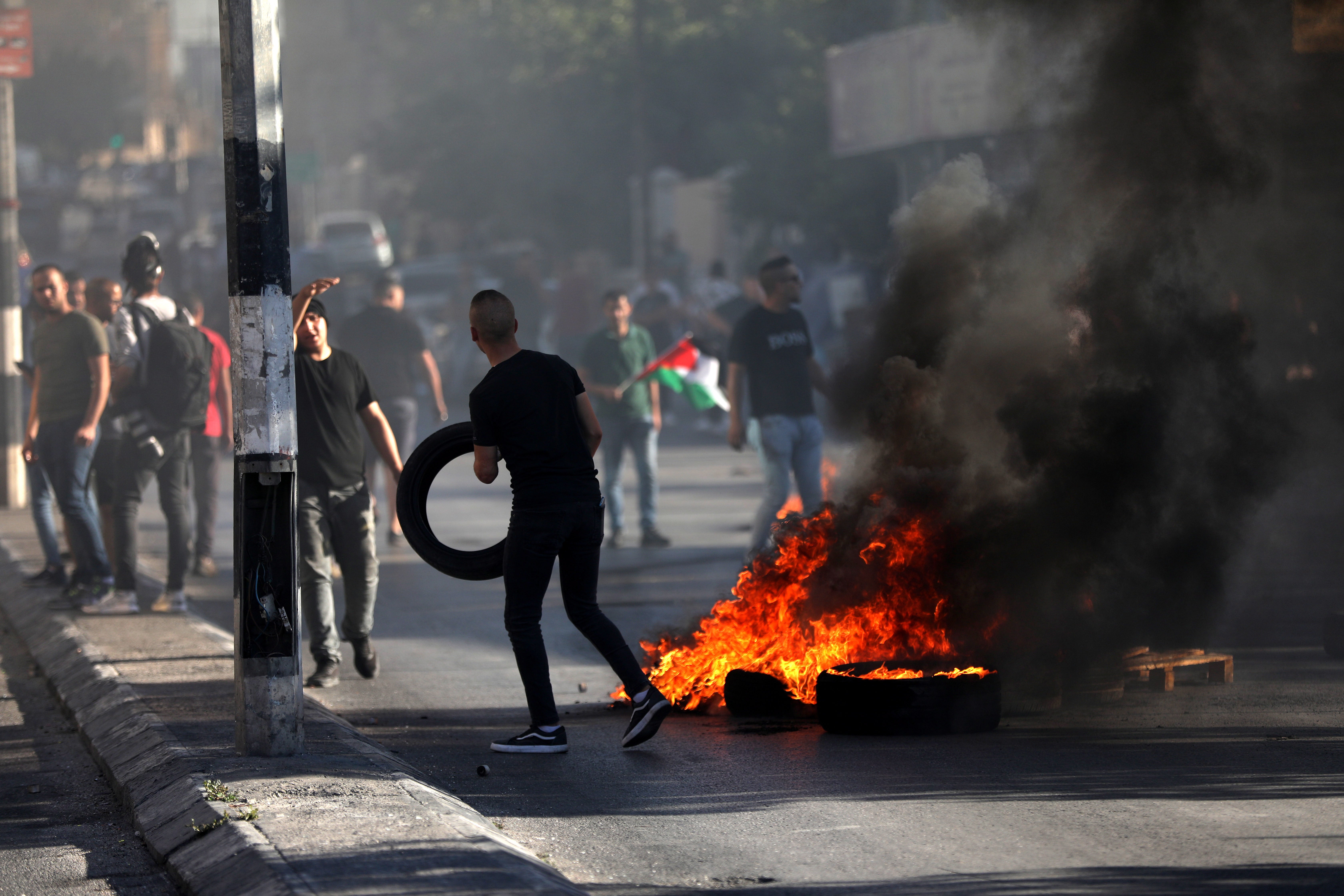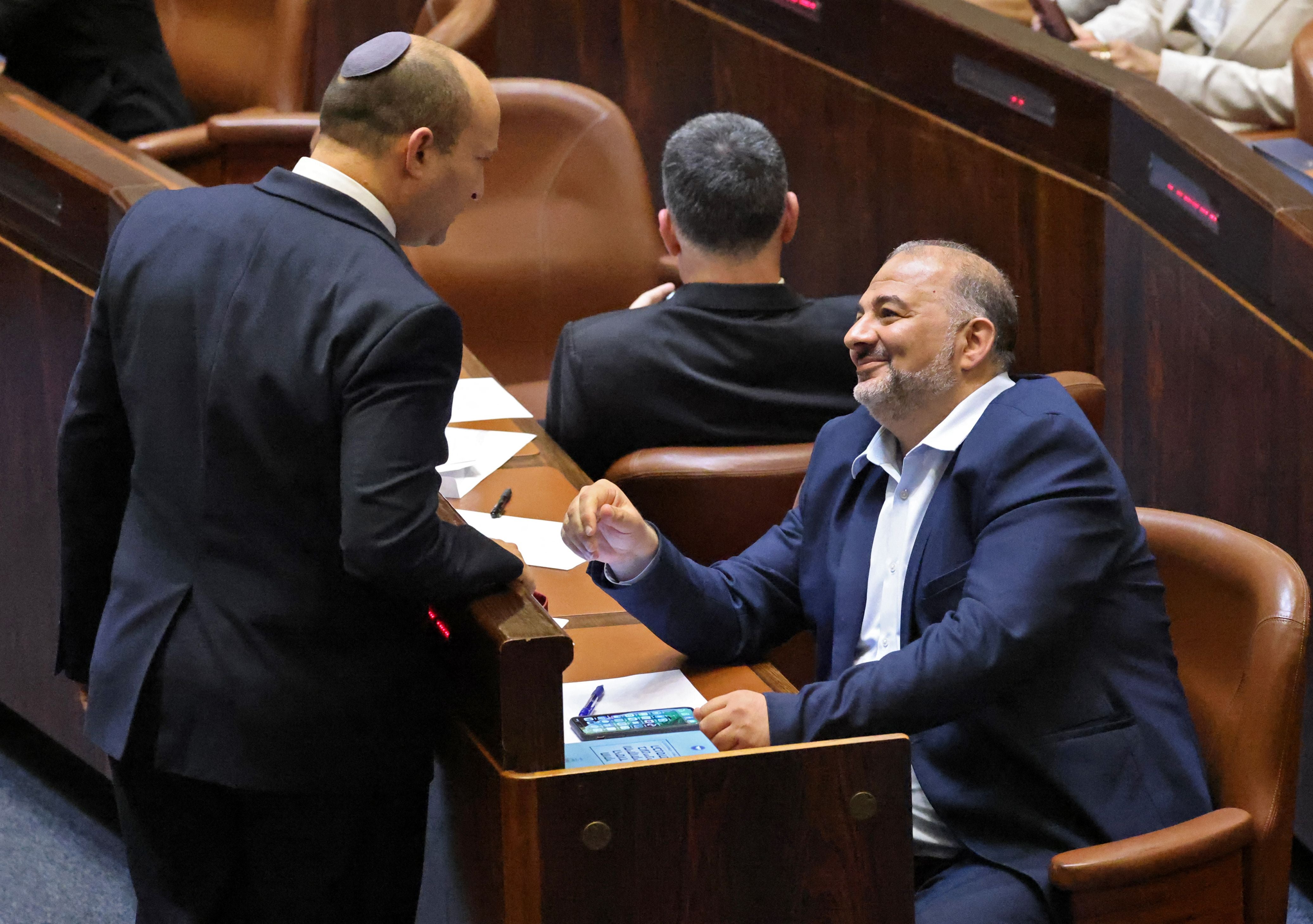For Israel’s new government, security begins at home
There’s little evidence Israel’s new government is going to prioritise the Palestinian issue

The last thing Naftali Bennett’s new administration would want is to launch Israel into all-out war merely three days after being sworn in – but on Tuesday night that was put to the test.
Overnight the Israeli military bombed Hamas targets in Gaza following the release of incendiary balloons which started several fires in southern Israel.
The spark that ignited yesterday’s violence was an Israeli nationalist flag march on Tuesday throughout Jerusalem’s old city. The annual flag march is highly contentious as both Palestinian and Jewish people see Jerusalem as their capital and religious city.
Despite calls for its cancellation, it still took place, albeit along a different route to avoid the Muslim quarter.
The flare-up has presented the new right-wing prime minister and defence hawk with his first-ever challenge: he must show strong leadership like his predecessor Benjamin Netanyahu while at the same time sending a clear message to Hamas.
Bennett made it clear in his inauguration speech to parliament on Sunday that he would continue the tough line taken by the Netanyahu government on the Iranian nuclear programme but made hardly any reference to the Palestinian issue.
Israel’s new leader is himself a staunch advocate for the expansion of Jewish settlements in what he refers to as Judea and Samaria, otherwise known as the West Bank. Palestinians say this is territory for their future state, but Bennett has repeatedly voiced his opposition to this.
So for those observing the new prime minister through the prism of the Israeli-Palestinian conflict, there would be little reason to expect change.
Bennett has previously advocated eradicating Hamas. But he is now operating in a very different context: his cabinet members represent all sides of Israeli society, and are likely to restrain his more hardline approach. The security cabinet, the inner sanctum of decision-making processes, includes many voices to the left of centre. This means Naftali Bennett and defence minister Benny Gantz’s joint stance on the targeted killings of Hamas leaders is unlikely to be enforced. This would be an immediate shift from Netanyahu’s approach during the recent conflict.
The fragile coalition that was voted in with a tiny majority includes avid left-wing voices such as Meretz, the Labour Party and, even more poignantly, Mansour Abbas and his Ra’am party that represent the religious Muslim Arab Israeli vote.

Although the coalition may be drawn from across the political divide, the government faces pressing issues that are likely to be the immediate focus.
“Israel has endured such a political stalemate and lack of functioning governance for so long that we need to readdress such fundamental issues such as education and healthcare,” a former government adviser Jason Pearlman said. “When we have the luxury to debate issues such as left and right we will do so, but till then there is so much to be done on which we can all agree. Ultimately though, with no Palestinian preparedness to reach a peaceful, negotiated solution, Israelis will feel they have enough to be getting on with at home.”
This has been the overall tone of the incoming and unlikely coalition.
So while the external issues such as Iran and the Palestinians may not see any great change in the status quo, there is hope that the new unity government will have a positive impact on the intra-communal relations between Jews and Arabs, who are still repairing the damage caused by the recent street riots, and the broader conflict.
Bennett will hope that goodwill between Israeli Arabs and Israeli Jews will extend to the relationship between Israel and the Palestinians.
Join our commenting forum
Join thought-provoking conversations, follow other Independent readers and see their replies
0Comments